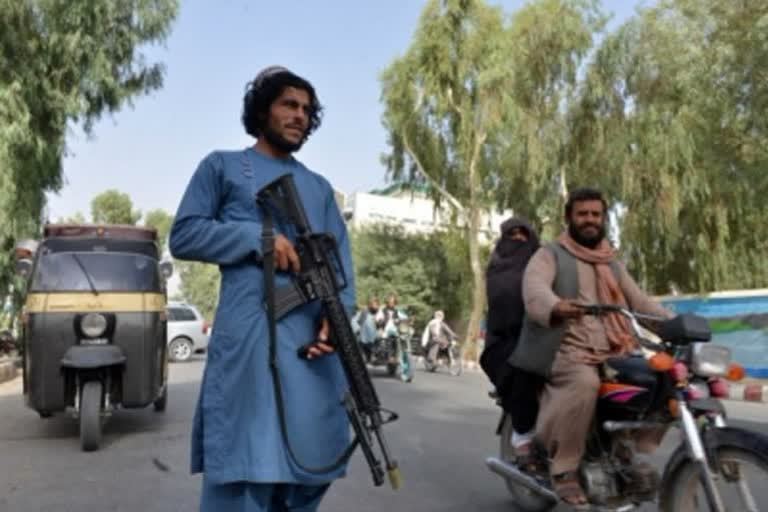Islamabad:U.S. and Pakistani officials held difficult talks on Friday in Pakistan's capital amid a worsening relationship between Washington and Islamabad as each searches for a way forward in a Taliban-ruled Afghanistan.
The meeting between Washington’s deputy secretary of state and Pakistan's leaders came amid an array of unsettled issues. They include questions such as the level of future engagement with the Taliban in Afghanistan, and the ongoing evacuation of foreign nationals and Afghans who want to flee the country's new Taliban rulers.
Another question on the agenda is who will provide funds to stave off a full economic meltdown and looming humanitarian crisis in Afghanistan. Since the Taliban takeover, billions of dollars in aid have been frozen. Nearly 80% of the former Afghan government's budget was funded by international donors.
Even as it shies away from any unilateral formal recognition, Pakistan has been pressing for greater engagement with the all-male, all-Taliban Cabinet that the insurgents set up after they overran Afghanistan in mid-August, in the final weeks of the U.S. and NATO pullout from the country.
Pakistan has also urged Washington to release billions of dollars to the Taliban so that they can pay salaries of the many Afghan ministries and avoid an economic meltdown. The United Nations High Commissioner for Refugees has warned that s such a crashcould unleash a mass migration.
Washington, which spent almost two full years negotiating peace with the Taliban, is still smarting from its dramatic exit from Afghanistan, after 20 years of war. Images of desperate Afghan men, running alongside a departing American C-17, some falling to their death from the wheel well, have come to represent the mayhem of the U.S. withdrawal.
Still, the United States is quietly talking to some Taliban leaders and current Taliban Cabinet ministers to secure the evacuation of American nationals remaining in Afghanistan and others. At home, Republican senators are pressing for legislation that would sanction Afghanistan’s new rulers.
The legislation introduced late last month by 22 Republican senators also calls for sanctions on Pakistan for providing safe haven for the Taliban. That has raised hackles among Pakistan's leaders, who have slammed Washington for what they say is unjust blaming of Pakistan for America's losses in Afghanistan — especially after seeking and receiving Islamabad's help in the protracted peace talks with the Taliban.
Pakistan has also opened doors to tens of thousands of evacuees from Afghanistan, providing temporary shelter for both foreigners and Afghans fleeing Taliban rule.
U.S. Deputy Secretary of State Wendy Sherman on Friday held meetings with Pakistan's army chief, Gen. Qamar Javed Bajwa, considered the leading architect of Pakistan's Afghan strategy. She also met with Foreign Minister Shah Mahmood Qureshi.
Little information has emerged from the meetings. A statement from Pakistan's foreign ministry said “an inclusive and broad-based political structure reflecting the ethnic diversity of Afghan society was essential for Afghanistan’s stability and progress.”
